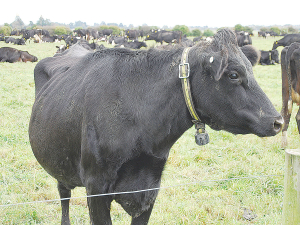Low-footprint feed drives high-profit, low-emissions dairy
The key to a dairy system that generates high profit with a low emissions intensity is using low footprint feed, says Fonterra program manager on-farm excellence, Louise Cook.
 Lincoln University Dairy Farm is expanding research to include variable milking frequency, moving the forage base to include plantain, and replacement rate reduction.
Lincoln University Dairy Farm is expanding research to include variable milking frequency, moving the forage base to include plantain, and replacement rate reduction.
Three new farming systems are being implemented to expand Lincoln University Dairy Farm’s (LUDF) focus and extend its outlook through to 2030.
The research is on variable milking frequency, moving the forage base to include plantain, and replacement rate reduction.
The South Island Dairying Demonstration Centre (SIDDC) has revised LUDF farm systems to more effectively contribute to New Zealand dairying and the wider primary sector.
Lincoln University deputy vicechancellor Professor Grant Edwards says SIDDC is committed to taking a leadership role in dairy farming in New Zealand through LUDF.
“It’s important that the partnership regularly reassesses and revisits the farm’s systems to consolidate its position at the vanguard of current and future scenarios.”
DairyNZ general manager for new systems and competitiveness, Dr David McCall, says New Zealand’s dairy sector is committed to remaining the most sustainable milk producers.
“As a SIDDC partner, we support LUDF implementing new farm systems. It is also exciting to see the adoption of variable milking frequencies, following DairyNZ’s three-year flexible milking project which highlighted the opportunities this system presents farmers.”
The variable milking programme will be implemented in the 2021/22 season and involves moving from the traditional twice-a-day milking to a more flexible milking regime with ten milkings over the course of a week.
SIDDC demonstration manager Jeremy Savage says there are many benefits to variable milking.
“A variable milking programme will not only improve cow welfare through less lameness, better overall health condition and enhanced vigour, but will also lift the safety and wellbeing of staff, with kinder rosters, fewer early starts and more condensed workloads allowing for better work/life balance,” he says.
Additionally, Savage says that starting in October 2021, LUDF will plant at least 10% of the farm into plantain each year.
“This is a forage that may significantly reduce nitrogen leaching. With cow intakes of 30% plantain or higher we anticipate LUDF will achieve further improvements to its nitrogen leaching results,” he says.
He says the potential benefits of reducing on-farm nitrogen leaching by up to 20% by managing cows’ diets are ‘obvious’ and ‘compelling’.
In introducing plantain, LUDF is applying research from the Forages for Reduced Nitrate Leaching (FRNL) project, a six-year cross-sector programme that looked at ways in which forages can reduce nitrate leaching.
Coming in at a year-end total at 3088 units, a rise of around 10% over the 2806 total for 2024, the signs are that the New Zealand farm machinery industry is turning the corner after a difficult couple of years.
New Zealand's animal health industry has a new tool addressing a long-standing sustainability issue.
The Government has announced that ACC will be a sponsor of this year's FMG Young Farmer of the Year competition.
As veterinary student numbers grow to help address New Zealand's national workforce shortge, Massey University's School of Veterinary Science is inviting more veterinary practices to partner in training the next generation of vets.
South Island dairy farmers will soon be able to supply organic milk to Fonterra.
Norwood has announced the opening of a new Tasman dealership at Richmond near Nelson next month.